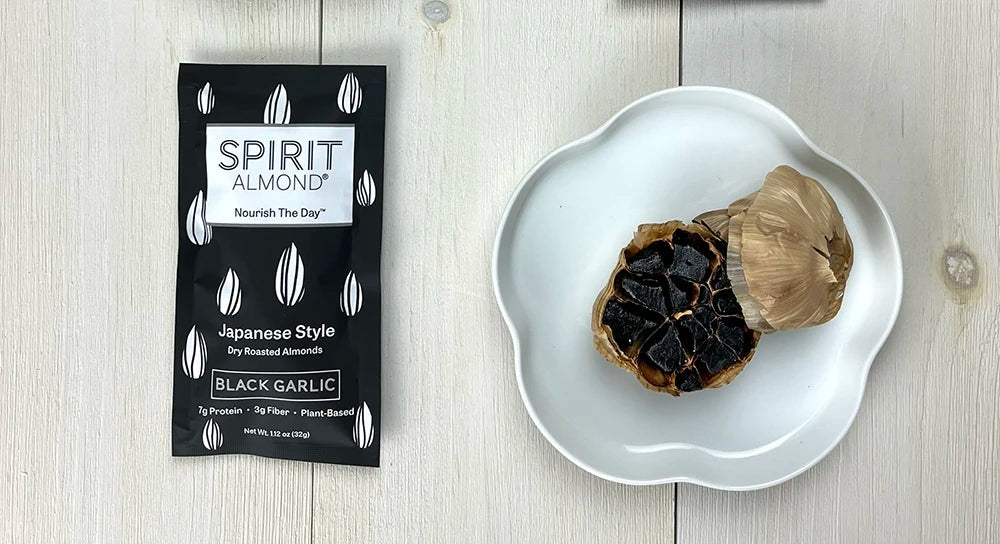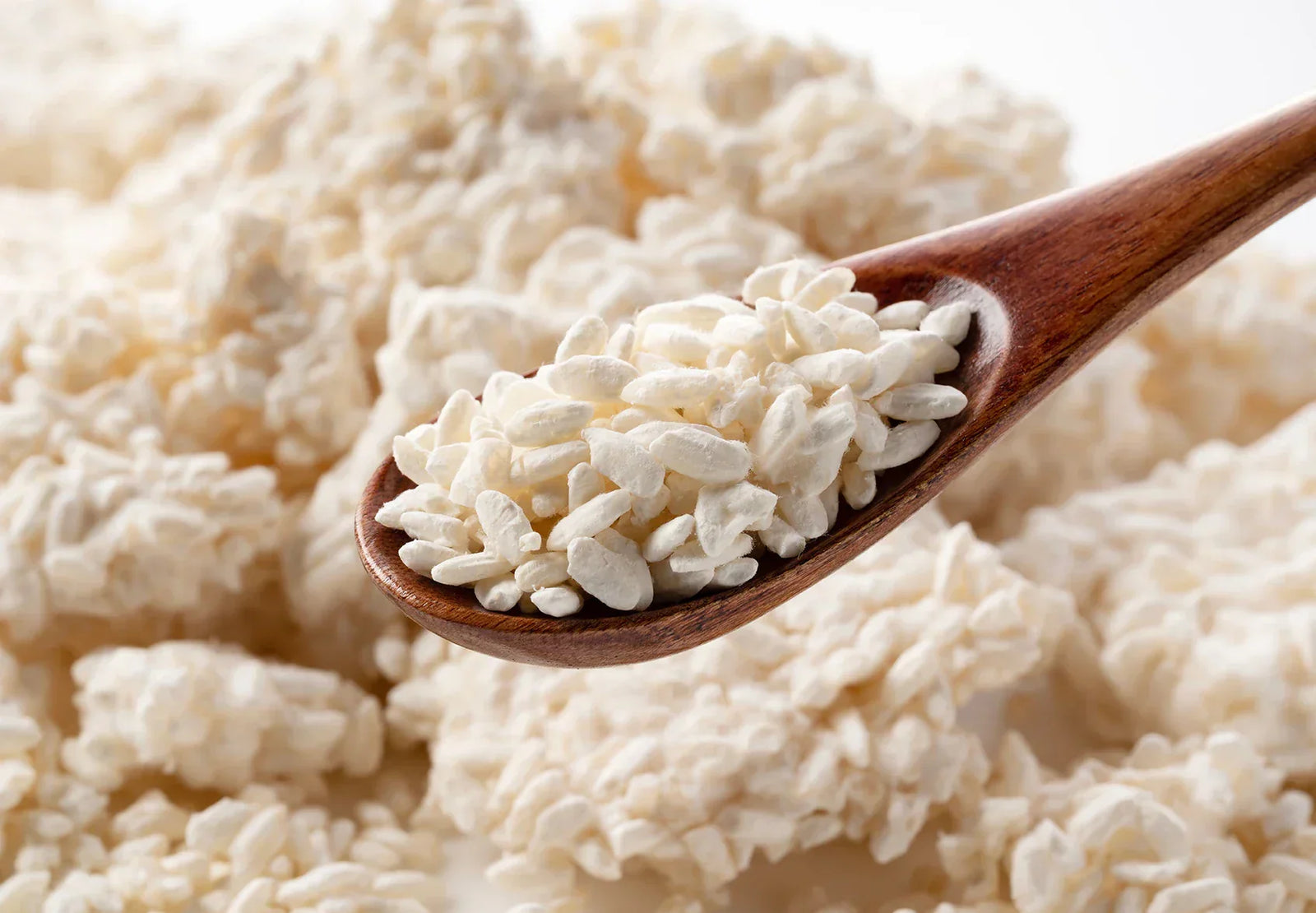“Let food be thy medicine...”
--Hippocrates (c. 400 B.C.)
The almond is as close to a miracle food as there is.
First, there’s the pleasure factor – a perfectly roasted almond is an epicurean delight, with a taste and crunch that are habit-forming.
And then there’s the nutrition – the almond is a great source of protein, fiber, vitamin E and other antioxidants, and so much more. The word “superfood” gets thrown around a lot these days, but the almond is one food that truly deserves the title. The almond has also long been recognized as a food with remarkable healing properties. The list of health benefits that almonds provide is astounding and is backed by rigorous and well-documented research.
If you are alive and reading this article, you will almost certainly find benefits on this list that relate to you, unless of course, you are allergic to almonds. Sure, you can take vitamins and supplements in pill form. But research shows that vitamins and minerals in the form of food lead to better health outcomes than those in supplement form.
The almond benefits for health go well beyond those that are on this list. For this article, we’re focused on benefits that are supported by scientific research and analysis. In these studies, the effects over time of eating almonds compared to not eating almonds were measured for a variety of health conditions. Study participants were people with chronically high cholesterol, people with similar skin types, and people who were trying to lose weight, to name a few.**
1. Lower Cholesterol
If you have high cholesterol, you’ve probably been told that you need to lower your LDL (Low-Density Lipoprotein, aka bad cholesterol). LDL is the type of cholesterol that builds up in our blood vessels, leading to a higher risk of heart attack or stroke. Almonds, because of their ability to help lower LDL levels, are on nearly every list of top foods recommended for people with high LDL.
What’s more, almonds have been shown to increase the ratio of HDL (High-Density Lipoprotein, aka good cholesterol) to LDL levels. HDL works by removing LDL from the bloodstream and scrubbing bad cholesterol buildup in the blood vessels.1
Multiple studies strongly indicate a lowering effect of LDL with the increased consumption of almonds. In one of them, subjects consumed either almonds or a low-fat whole wheat muffin with the same number of calories. After just one month, the almond group experienced a 9.4% drop in LDL and a higher HDL to LDL ratio in their cholesterol levels.2
If you’re looking for snacks for lower cholesterol, look no further.
2. Lower risk of heart disease
This one goes hand in hand with lowering cholesterol. In a study that looked at the risk of Coronary Heart Disease over a 10-year period, it was observed that eating one ounce of almonds every day could result in a 3.5% reduction in heart disease risk. It also found that two ounces could reduce the risk by 7%, and three ounces could lead to a 10.5% reduction in that risk.3
3. Lower blood sugar, lower fasting insulin, increased insulin sensitivity
According to the CDC (Centers for Disease Control), one-third of Americans are living with diabetes or prediabetes, many of them unknowingly. Diabetes is a chronic disease characterized by high levels of glucose in the blood. Prediabetes is defined as higher than normal blood glucose levels that are not quite high enough to be considered diabetes, but is a serious condition nonetheless. Elevated blood sugar levels are associated with a host of health problems – heart disease, stroke, and nerve damage, to name a few.
In multiple studies, it was shown that by eating two ounces of almonds a day over a few months, participants were able to significantly reduce their fasting glucose and insulin levels, important measures of blood sugar levels.4 5
4. Moister skin with fewer wrinkles and spots
There have been multiple studies linking the consumption of almonds and skin health. In a recent one, women who ate two ounces of almonds daily, at the end of four months experienced a 15% decrease in the severity of wrinkles and a 20% decrease in facial pigmentation. Skin hydration levels also improved during the same period. 6
5. UVB Ray Protection for your Skin
The almond has also shown the remarkable ability to protect skin against the sun’s harmful rays. In one study, a group of women whose skin type sunburns easily was given a daily snack of 1.5 ounces of almonds for three months. By the end of that period, it took 20% longer sun exposure for their skin to reach the same level of redness as those who hadn’t consumed daily almonds. Though high SPF sunblock and UV-protective clothing are the best bet, daily consumed almonds can be an extra insurance policy for those times when you’re unable to reapply sunblock or have to be in the sun unexpectedly.7
6. Lower Inflammation
Inflammation is a word we’ve heard a lot lately, but what exactly is it? It’s the body’s response to a perceived threat. When it’s brief it is a good thing – acute inflammation is when part of the body begins to swell shortly after injury. It’s part of the body’s healing process.
But when it continues for weeks or years, it’s called chronic inflammation and is associated with diseases like asthma, diabetes, and Alzheimer’s. It’s a sign of a long-term problem, like fatigue, depression, or poor dietary choices.
Daily consumption of almonds or other nuts has been shown to significantly reduce
C-reactive proteins, which are substances produced by the liver and are markers of inflammation. 8
7. Weight loss and appetite suppression
A common misconception about almonds is that their high-fat content leads to weight gain. Almonds, in fact, have not only proven to be helpful in weight loss, but are the only nut to have shown to lead to a decrease in body mass and fat mass.
A few factors need to be considered here.
First, and importantly, as much as 20% of the calories in almonds are not even absorbed by the body. In other words, those calories pass right through you and don’t count toward your caloric intake in the first place. 9
Almonds are also effective for appetite suppression. In experiments, whether added to meals, or eaten as a between-meal snack, almonds leave one feeling satiated for longer, and hunger levels are reduced for the next meal. Consumption of almonds also leads to a decreased desire for high-fat foods.10
It’s true that almonds are high in fat. However, these are fats that are considered healthy fats, namely, monounsaturated fat and polyunsaturated fat, the same ones that help reduce cholesterol levels. And almonds are also effective for lowering blood sugar, which is another risk factor for weight gain.
8. Sports Performance, increased endurance
If you walk, run, bike, swim, hike, dance, or do any other physical activity on a regular basis, this one’s for you. Nuts have long been a favorite go-to snack for athletes as a healthy, high-protein energy source. But in a remarkable study, bicyclists and triathletes actually increased their cycling distance after just four weeks of eating almonds.
At the outset of the experiment, participants were given a daily snack that was not almonds, but one that was higher in carbs. During that time, they were tested on how far they could ride (on stationary bikes) for a set duration. After 4 weeks, followed by a two-week interval, they were then switched to a snack consisting of whole almonds. By the end of just four weeks, the participants were able to ride further in the same amount of time. This strongly suggests that almonds helped these athletes to increase their athletic performance. The researchers also noted improvements in athletic endurance.11
9. Improved brain function
In a 6-month study of middle-aged to older adults, a daily snack consisting of 3 ounces of almonds showed a significant improvement in cognitive and memory recall performance, compared to those who did not consume almonds.12
10. Reduced Cancer Risk
Almonds are a wondrous source of antioxidant Vitamin E alpha-tocopherol, which protects cells from oxidative stress. Almonds also contain many compounds which may have anticarcinogenic effects.
In one study, almonds were found to have a protective effect against breast cancer, the most common form of cancer. Women who regularly ate high amounts of almonds or other nuts were found to be 2-3 times less likely to develop breast cancer.13
11. Lower Blood Pressure
Almonds have also shown that they can lower blood pressure. Due to the almond’s richness in antioxidant Vitamin E, when consumed, the blood’s alpha-tocopherol level rises, which results in lower systolic blood pressure. It’s also believed that the magnesium content of almonds is a contributing factor in lowering blood pressure, as low blood levels of magnesium are associated with high blood pressure. Eating 50g (just under two ounces) of almonds a day for just one month has shown to result in a significant drop in blood pressure, in just one month.14
12. Healthy Gut Balance
Almonds are a good source of dietary fiber, both soluble and insoluble, which help promote good digestion and regularity. But the benefits for gut health don’t stop there – daily almond consumption has also shown to be beneficial for the intestinal microbiome, the collection of microbes that live in our gut. After just 8 weeks, not only do the quality and quantity of beneficial microbes increase, harmful bacteria in the intestinal tract decreased by 50%.15
Gut health has been linked to everything from nutrient absorption and weight control, to immune response, mental health, and cancer prevention.
13. Immune system booster
Almonds are believed to also boost the body’s immune system. In addition to the plentiful Vitamin E found in almonds, almond skins are a rich source of polyphenols and other antioxidants. In a laboratory setting, these natural chemicals have been shown to have antimicrobial and antiviral properties.16
14. Stress reduction
And if all of these aren’t enough reasons to snack on almonds regularly, here’s one we all could use -- stress reduction. How do researchers measure that? There are multiple approaches, but one is to measure Heart Rate Variability, also known as HRV. HRV is the time between heartbeats, and it fluctuates from beat to beat in everybody. Though it may sound counter-intuitive, increased heart rate variability is generally a good thing. Low variability indicates higher levels of stress or anxiety and is a warning sign of serious disease.
In a six-week study, participants ate almonds daily, while another group ate foods of a caloric equivalent. By the end of the study, those who ate almonds were exhibiting higher HRV levels than their counterparts, indicating some protection against stress.17
Consider this list a starting place if you want to know more about the amazing power of the almond. It’s important to keep in mind that for body and mind wellness, a complete and balanced approach that includes exercise and good sleep habits will give the best results.
We will update this list as more research findings become available. And check out our future posts, which will delve into each of these benefits in greater detail.
In the meantime, with all of these potential benefits, and the fact that they are just so delicious, it’s worth considering them for your daily diet. And because almonds are extremely versatile, there are countless ways to enjoy them – whether you eat them whole, sliced, crushed, ground into flour, raw, toasted, or roasted.
Note: This article was written by SPIRIT Almond. We created what we think are the best flavored almonds out there – all-natural, plant-based, and super flavorful…but not over-seasoned. We believe in the almond so much that we built an entire brand around it, and we want to spread the word.
**Disclaimer: The information contained in this article is based on publicly available research and journalistic writings, and is provided for informational purposes only. Medical and nutritional decisions should be made in consultation with one’s own trusted medical professionals.
Sources:
- 1Berryman, Claire E et al. “Inclusion of Almonds in a Cholesterol-Lowering Diet Improves Plasma HDL Subspecies and Cholesterol Efflux to Serum in Normal-Weight Individuals with Elevated LDL Cholesterol.” The Journal of nutrition vol. 147,8 (2017): 1517-1523. doi:10.3945/jn.116.245126
- 2Jenkins, David J A et al. “Dose response of almonds on coronary heart disease risk factors: blood lipids, oxidized low-density lipoproteins, lipoprotein(a), homocysteine, and pulmonary nitric oxide: a randomized, controlled, crossover trial.” Circulation vol. 106,11 (2002): 1327-32. doi:10.1161/01.cir.0000028421.91733.20
- 3Nishi, Stephanie et al. “Effect of almond consumption on the serum fatty acid profile: a dose-response study.” The British journal of nutrition vol. 112,7 (2014): 1137-46. doi:10.1017/S0007114514001640
- 4Li, Sing-Chung et al. “Almond consumption improved glycemic control and lipid profiles in patients with type 2 diabetes mellitus.” Metabolism: clinical and experimental vol. 60,4 (2011): 474-9. doi:10.1016/j.metabol.2010.04.009
- 5Wien, Michelle et al. “Almond consumption and cardiovascular risk factors in adults with prediabetes.” Journal of the American College of Nutrition vol. 29,3 (2010): 189-97. doi:10.1080/07315724.2010.10719833
- 6Rybak I, Carrington AE, Dhaliwal S, et al. Prospective Randomized Controlled Trial on the Effects of Almonds on Facial Wrinkles and Pigmentation. Nutrients. 2021;13(3):785. Published 2021 Feb 27. doi:10.3390/nu13030785
- 7Li JN, Henning SM, Thames G, Bari O, Tran PT, Tseng CH, Heber D, Kim J, Li Z. Almond consumption increased UVB resistance in healthy Asian women. J Cosmet Dermatol. 2021 Sep;20(9):2975-2980. doi: 10.1111/jocd.13946. Epub 2021 Jan 24. PMID: 33491323; PMCID: PMC8451851.
- 8Liu, Jen-Fang et al. “The effect of almonds on inflammation and oxidative stress in Chinese patients with type 2 diabetes mellitus: a randomized crossover controlled feeding trial.” European journal of nutrition vol. 52,3 (2013): 927-35. doi:10.1007/s00394-012-0400-y
- 9Nishi, Stephanie K et al. “Almond Bioaccessibility in a Randomized Crossover Trial: Is a Calorie a Calorie?.” Mayo Clinic proceedings vol. 96,9 (2021): 2386-2397. doi:10.1016/j.mayocp.2021.01.026
- 10Dreher, Mark L. “A Comprehensive Review of Almond Clinical Trials on Weight Measures, Metabolic Health Biomarkers and Outcomes, and the Gut Microbiota.” Nutrients vol. 13,6 1968. 8 Jun. 2021, doi:10.3390/nu13061968
- 11Yi M, Fu J, Zhou L, Gao H, Fan C, Shao J, Xu B, Wang Q, Li J, Huang G, Lapsley K, Blumberg JB, Chen CY. The effect of almond consumption on elements of endurance exercise performance in trained athletes. J Int Soc Sports Nutr. 2014 May 11;11:18. doi: 10.1186/1550-2783-11-18. PMID: 24860277; PMCID: PMC4031978.
- 12Mustra Rakic, Jelena et al. “Effects of daily almond consumption for six months on cognitive measures in healthy middle-aged to older adults: a randomized control trial.” Nutritional neuroscience, 1-11. 15 Jan. 2021, doi:10.1080/1028415X.2020.1868805
- 13Soriano-Hernandez AD, Madrigal-Perez DG, Galvan-Salazar HR, Arreola-Cruz A, Briseño-Gomez L, Guzmán-Esquivel J, Dobrovinskaya O, Lara-Esqueda A, Rodríguez-Sanchez IP, Baltazar-Rodriguez LM, Espinoza-Gomez F, Martinez-Fierro ML, de-Leon-Zaragoza L, Olmedo-Buenrostro BA, Delgado-Enciso I. The protective effect of peanut, walnut, and almond consumption on the development of breast cancer. Gynecol Obstet Invest. 2015;80(2):89-92. doi: 10.1159/000369997. Epub 2015 Jul 10. PMID: 26183374.
- 14Choudhury, K et al. “An almond-enriched diet increases plasma α-tocopherol and improves vascular function but does not affect oxidative stress markers or lipid levels.” Free radical research vol. 48,5 (2014): 599-606. doi:10.3109/10715762.2014.896458
- 15Dhillon, Jaapna et al. “Almond Snacking for 8 wk Increases Alpha-Diversity of the Gastrointestinal Microbiome and Decreases Bacteroides fragilis Abundance Compared with an Isocaloric Snack in College Freshmen.” Current developments in nutrition vol. 3,8 nzz079. 3 Jul. 2019, doi:10.1093/cdn/nzz079
- 16Musarra-Pizzo, Maria et al. “The Antimicrobial and Antiviral Activity of Polyphenols from Almond (Prunus dulcis L.) Skin.” Nutrients vol. 11,10 2355. 3 Oct. 2019, doi:10.3390/nu11102355
- 17Dikariyanto, Vita et al. “Snacking on Whole Almonds for Six Weeks Increases Heart Rate Variability during Mental Stress in Healthy Adults: A Randomized Controlled Trial.” Nutrients vol. 12,6 1828. 19 Jun. 2020, doi:10.3390/nu12061828





